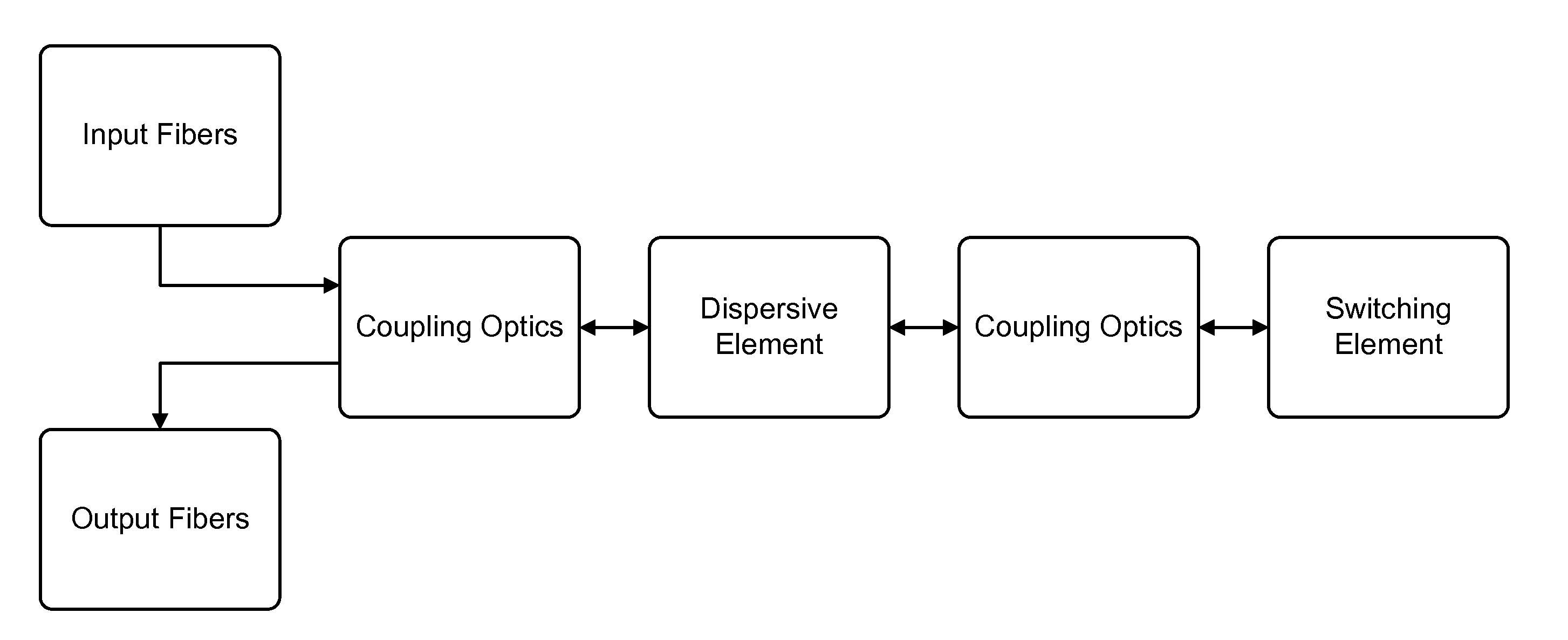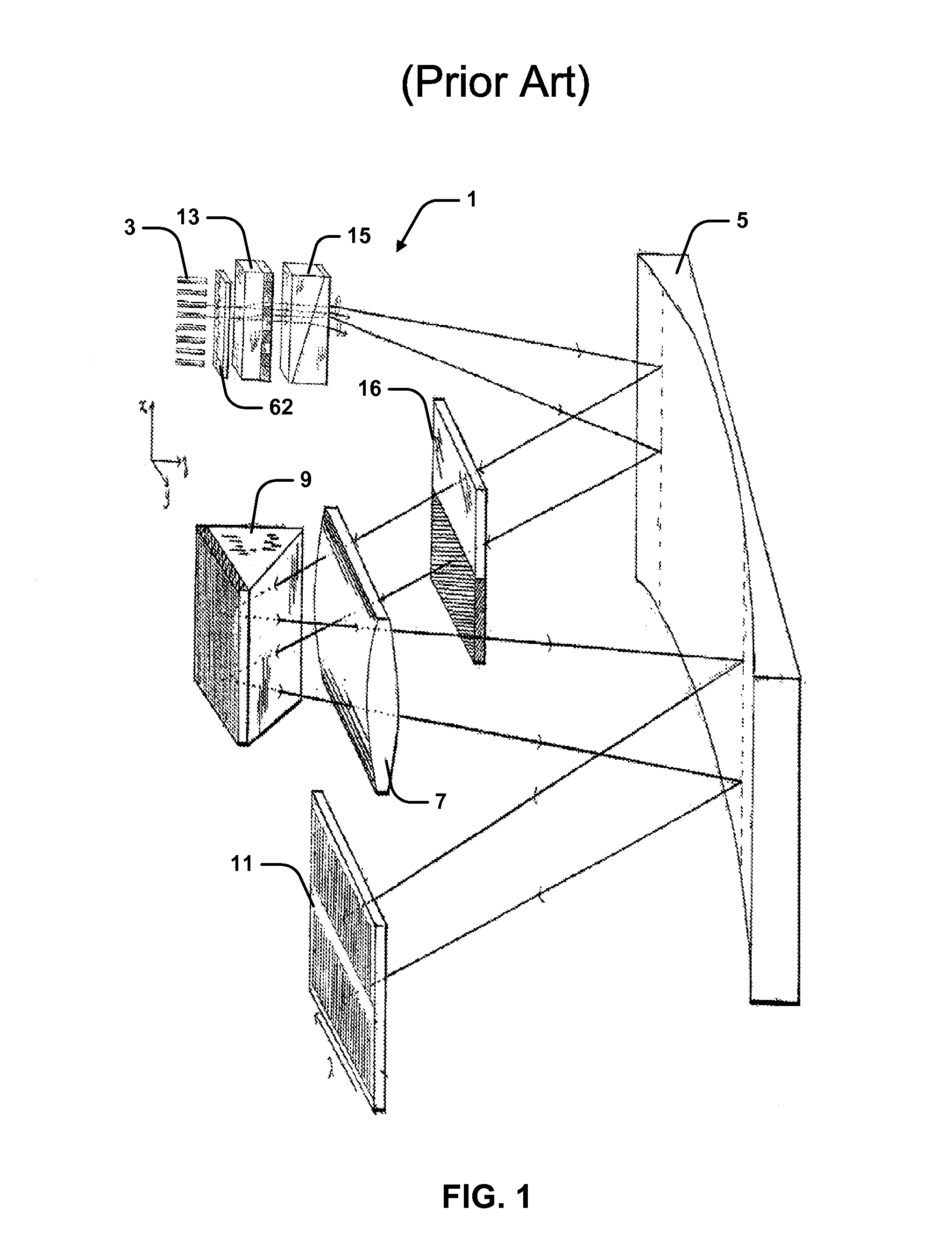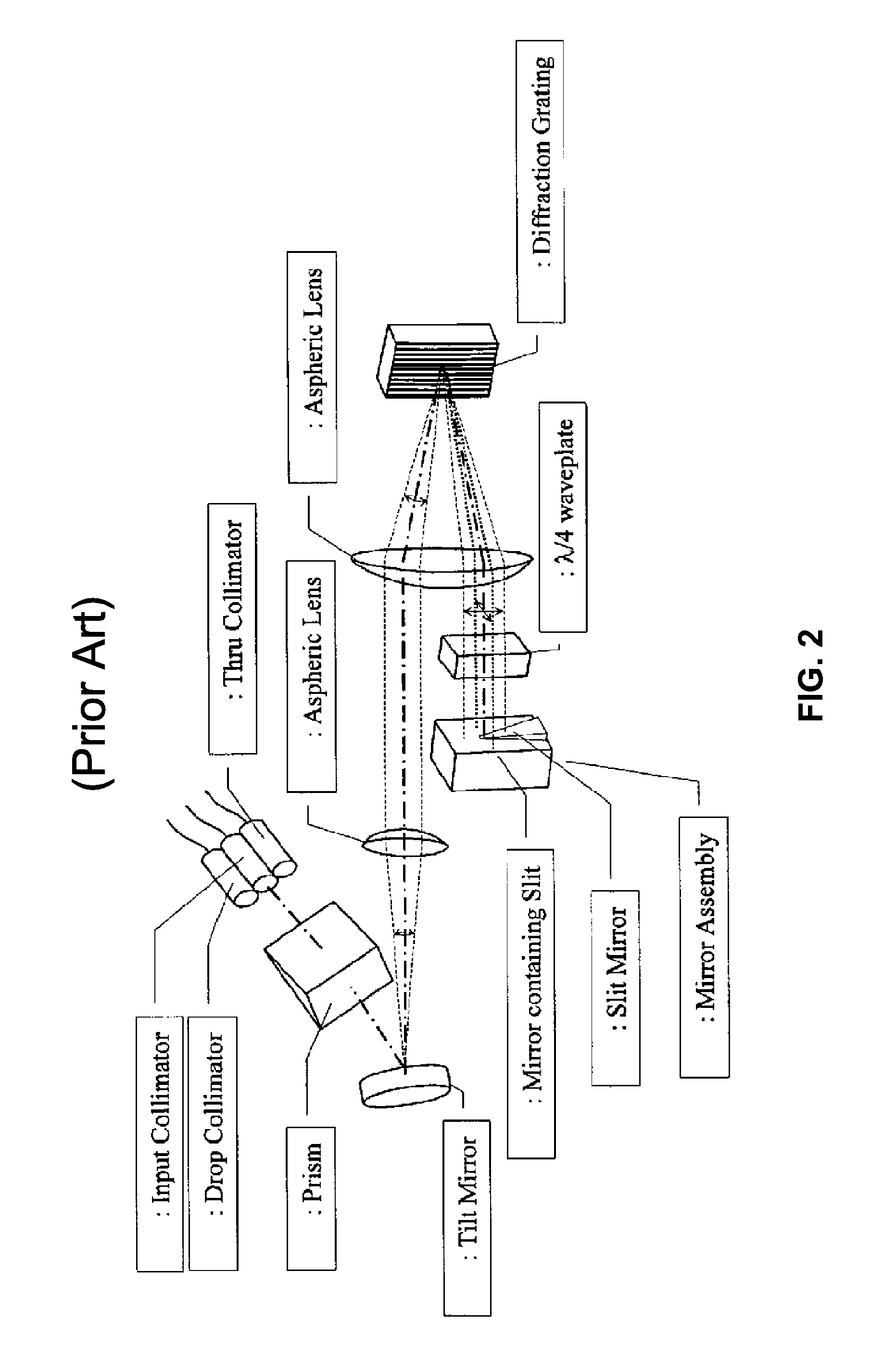Systems and methods for reducing off-axis optical aberrations in wavelength dispersed devices
a wavelength dispersed optical and wavelength-dispersed technology, applied in the field of optical systems, can solve the problems of loss of signal information, increasing importance of off-axis and outside the paraxial region propagation of beams, and increasing the effects of optical aberration
- Summary
- Abstract
- Description
- Claims
- Application Information
AI Technical Summary
Benefits of technology
Problems solved by technology
Method used
Image
Examples
Embodiment Construction
Outline of the Relevant Optical Systems
[0070]Referring initially to FIGS. 1 to 3, there are illustrated examples of known wavelength selective switches (WSS). FIG. 1 illustrates an LCOS-based WSS utilizing a reflective liquid crystal phase matrix to switch wavelength channels (from U.S. Pat. No. 7,397,980 entitled “Dual-Source Optical Wavelength Processor” to Frisken and assigned to Finisar Corporation). FIG. 2 illustrates a MEMS-based WSS device utilizing a two-dimensional array of reflective micro electromechanical (MEMS) mirrors for steering and switching wavelength channels (from U.S. Pat. No. 7,408,639 entitled “Tunable Optical Routing System” to Strasser et al. and assigned to Nistica, Inc.). FIG. 3 illustrates another MEMS-based switch (from Reissued U.S. Pat. No. RE39,411 entitled “Reconfigurable All-Optical Multiplexers With Simultaneous Add-Drop capability” to Belser et al. and assigned to Capella Photonics, Inc.).
[0071]Considered collectively, the devices of FIGS. 1 to 3 ...
PUM
 Login to View More
Login to View More Abstract
Description
Claims
Application Information
 Login to View More
Login to View More - R&D
- Intellectual Property
- Life Sciences
- Materials
- Tech Scout
- Unparalleled Data Quality
- Higher Quality Content
- 60% Fewer Hallucinations
Browse by: Latest US Patents, China's latest patents, Technical Efficacy Thesaurus, Application Domain, Technology Topic, Popular Technical Reports.
© 2025 PatSnap. All rights reserved.Legal|Privacy policy|Modern Slavery Act Transparency Statement|Sitemap|About US| Contact US: help@patsnap.com



